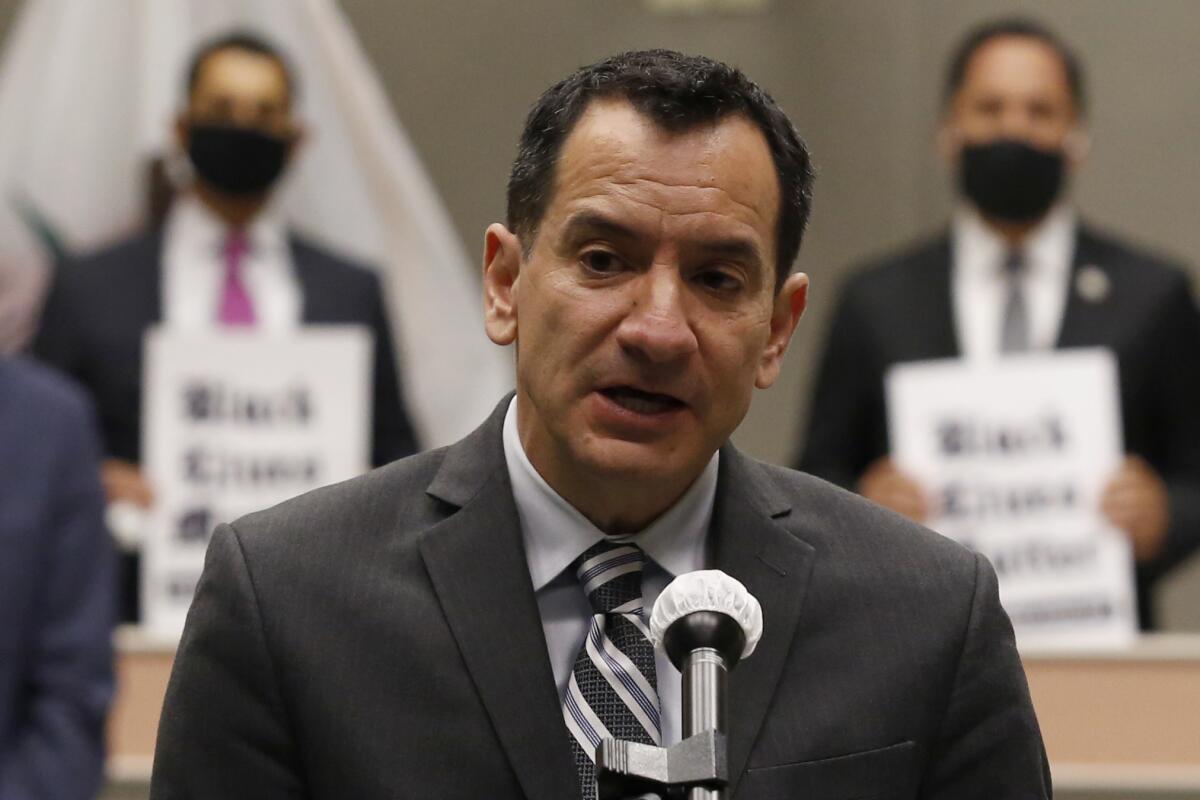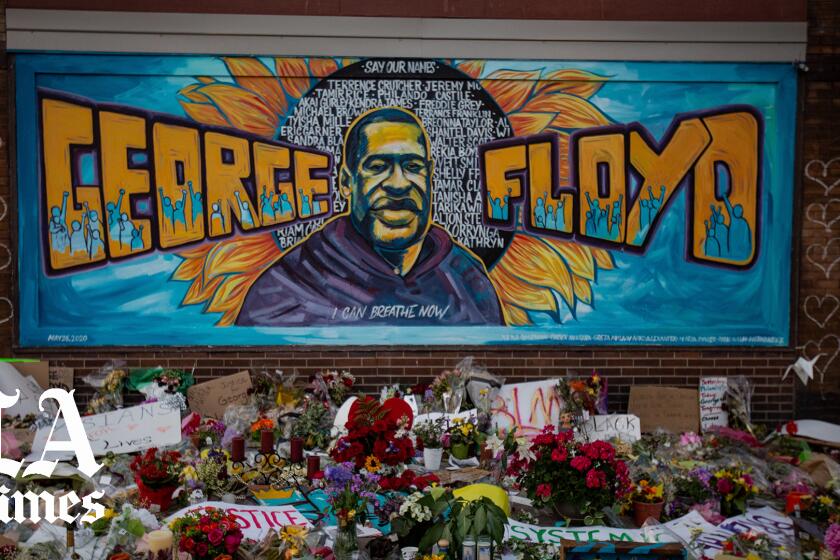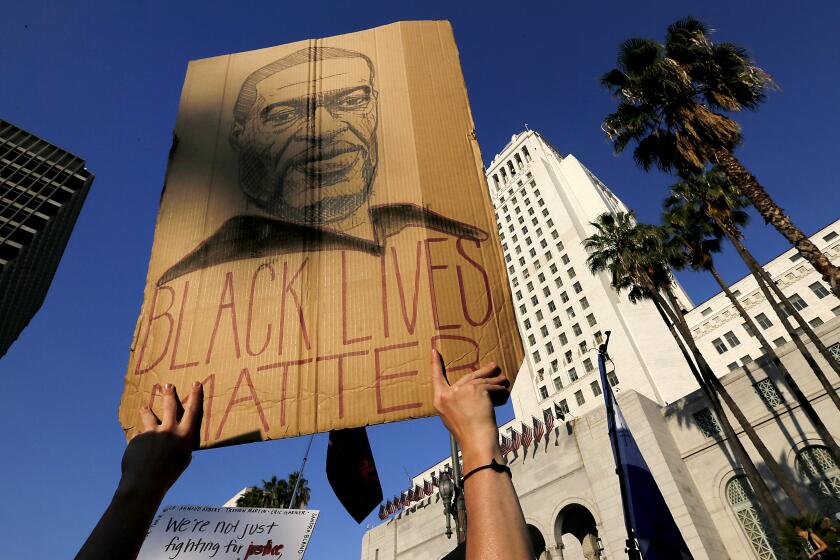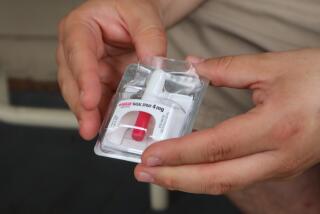California would ban police chokeholds under deal struck by legislative leaders

- Share via
SACRAMENTO — California’s Assembly speaker and other key lawmakers on Monday backed making it illegal statewide for police to use a type of neck hold that blocks the flow of blood to the brain, a proposal that appears to go beyond that of any other state.
Major law enforcement groups did not immediately say whether they would oppose the move, which comes after a different restraint used by Minneapolis police was blamed for the death of George Floyd, triggering ongoing nationwide protests.
Assembly Speaker Anthony Rendon (D-Lakewood) endorsed legislation that Assemblyman Mike Gipson (D-Carson) said he will amend to make it illegal to use chokeholds and a carotid artery restraint tactic to forcibly detain a suspect.
“We ... have to change a culture of excessive force that seems to exist among some members of law enforcement,” Rendon said at a news conference. “This bill will end one brutal method that police use for restraining people.”
The method, also known as a sleeper hold, involves applying pressure to the sides of the neck with an arm. It can almost immediately block blood flow in the carotid arteries and render someone unconscious, but can cause serious injury or death if the blood flow is restricted too long.
“These methods and techniques are supposed to save lives, but they don’t — they take lives,” Gipson said.
France will no longer allow police to use chokeholds
Colorado and Illinois allow use of the hold only if police deem lethal force to be justified, said Amber Widgery, a criminal justice analyst with the National Conference of State Legislatures, while Tennessee allows its use if other means of restraint have been ineffective. Washington, D.C., bans a similar trachea hold but permits the carotid hold under circumstances where lethal force is allowed.
Other states use more general legal language, she said, and it’s unclear whether California’s proposal will allow any exceptions because Gipson did not release the actual language of his bill.
Gov. Gavin Newsom on Friday said he would sign Gipson’s bill if it is approved by lawmakers, and ordered the state’s police training program to stop teaching officers how to use the neck hold.
Congressional Democrats on Monday also introduced legislation aimed at reforming police practices, including by banning certain policing tactics including chokeholds.
Although the Legislature is controlled by Democrats, state Sen. Scott Wiener (D-San Francisco) said law enforcement reforms “are incredibly hard to move forward.” He also mentioned proposed legislation that would restrict when police can use rubber bullets.
The sleeper hold ban was backed Monday by black, Latino, Asian-Pacific Islander, Jewish and LGBTQ legislative caucuses.
It is also supported by the California Medical Assn. because the holds “can be misapplied and botched easily,” incoming President Dr. Lee Snook said
One problem is the holds can fatally aggravate underlying health issues, Snook said, something police can’t know about on the spur of the moment.
“It is a difficult procedure to do ... but it is effective when applied effectively,” said Brian Marvel, president of the rank-and-file Peace Officers Research Assn. of California, which represents more than 77,000 individuals and 930 associations.
His association is likely to defer to organizations representing police chiefs and sheriffs that determine what methods officers and deputies are allowed to use. The sheriffs’ association has not taken a position in part because it hasn’t seen the details, spokesman Cory Salzillo said. The chiefs’ association did not respond to requests for comment Monday.
The police use of carotid holds has a troubled history, killing and seriously injuring some people.
Officers would still have a variety of tools to control suspects if the hold is banned, Marvel said, including voice commands, nightsticks, Tasers, pepper spray and firearms. Sen. Maria Elena Durazo (D-Los Angeles), a bill coauthor, said 23 California law enforcement agencies have already limited its use, several in the last week.
Marvel urged California lawmakers to make it clear that police still can “do what they need to do to save themselves.” He said lawmakers should consider allowing its continued use in certain circumstances, for instance when police or air marshals have limited options to control a suspect aboard an airplane.
Gipson, a former police officer, was among lawmakers who said they hope other states will follow California’s lead in banning the hold.
More to Read
Sign up for Essential California
The most important California stories and recommendations in your inbox every morning.
You may occasionally receive promotional content from the Los Angeles Times.












